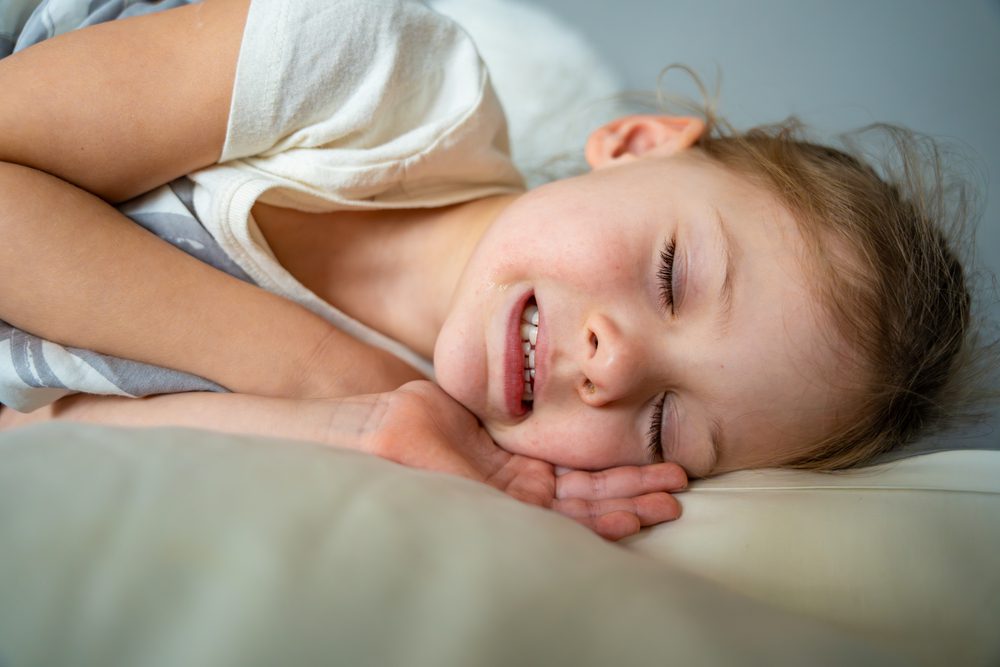If you’ve noticed your little one grinding their teeth while sleeping or playing, you’re not alone. This oftentimes concerning behavior, known as bruxism, is particularly common in our kiddos, but it doesn’t make it any less alarming to witness. So, in today’s pediatric dentistry mystery, our Overland Park dentist is here to explain bruxism.
Do you have questions about your child’s growing smile? Dr. Matthew Hillman and his friendly team at Smiles Dentistry for Kids are here to help. Contact our pediatric dentist in Overland Park, KS, at (913) 685-9990 for answers, advice, and so much more!
Now, let’s unravel this dental mystery together and explore why kids grind their teeth and what you can do to help them.
What is bruxism?
Bruxism is the technical term for teeth grinding or clenching. Bruxism can happen during the day, but it’s more common at night when your child is fast asleep.
Experts believe that up to 49% of kiddos experience teeth grinding in some way. Luckily, most children grow out of this behavior as they get older.
Why do kids grind their teeth?
It’s hard to know for sure, but there are a few theories about childhood bruxism:
Growing Pains
As children’s jaws grow and their teeth come in, they might grind to help their mouths adjust. Think of it as nature’s way of getting things to fit just right.
Stress and Anxiety
Just like adults, children can experience stress and anxiety. Maybe it’s that upcoming spelling bee, a change in routine, or even something as thrilling as a new sibling. Grinding can be an unconscious way to deal with big feelings.
Alignment Issues
Sometimes, misaligned teeth or an irregular bite can cause bruxism. If the upper and lower teeth don’t fit together correctly, the jaw might shift and grind to find a comfortable position.
Medical Conditions and Medications
Certain medications and conditions (like cerebral palsy or ADHD) can contribute to teeth grinding.
How can parents help?
There are several steps you can take to manage and reduce bruxism in your child:
Create a Calming Bedtime Routine
Creating a serene environment can ease anxiety and reduce nighttime grinding. So, try warm baths, bedtime stories, and soft music.
Talk it Out
If stress or anxiety seems to be the culprit, encourage your child to talk about their worries. Sometimes, a simple conversation can work wonders.
Check for Alignment Issues
Regular dental check-ups are crucial. Dr. Matt can check for alignment issues and monitor your child’s dental development.
Introduce a Night Guard
A night guard is like a cozy little helmet for your child’s teeth. Worn during sleep, it can protect those chompers from the wear and tear of grinding.
Stay Vigilant
Keep an eye on your child’s symptoms. Are they waking up with headaches or jaw pain? Are their teeth looking worn down? Keeping track of these signs can help Dr. Matt provide the best care possible.
Address Childhood Teeth Grinding with Dr. Matt
If your child’s bruxism is persistent or causing significant discomfort, it’s time to enlist the help of the team at Smiles Dentistry for Kids. Contact Dr. Matt Hillman online, or call our Overland Park, KS, dentist at (913) 685-9990 for more advice and information.


